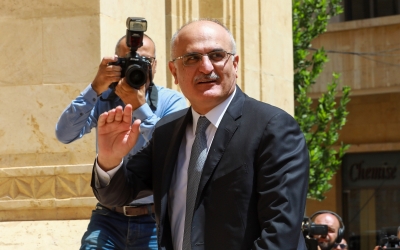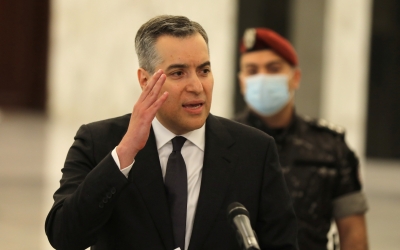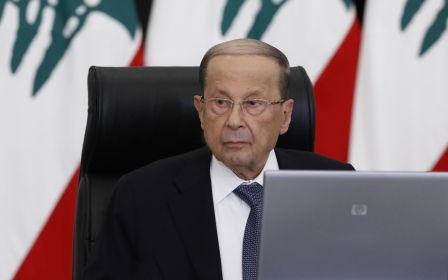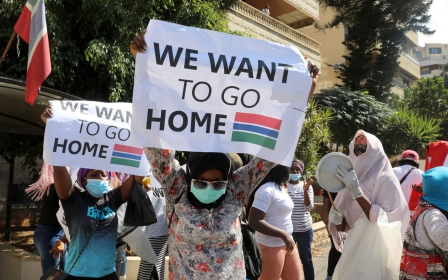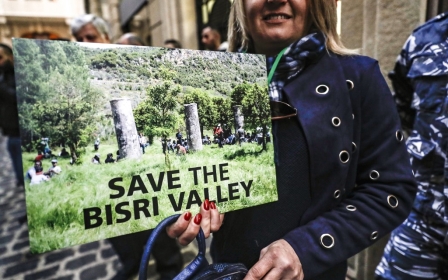US and France disagree on approach to Hezbollah, American official says
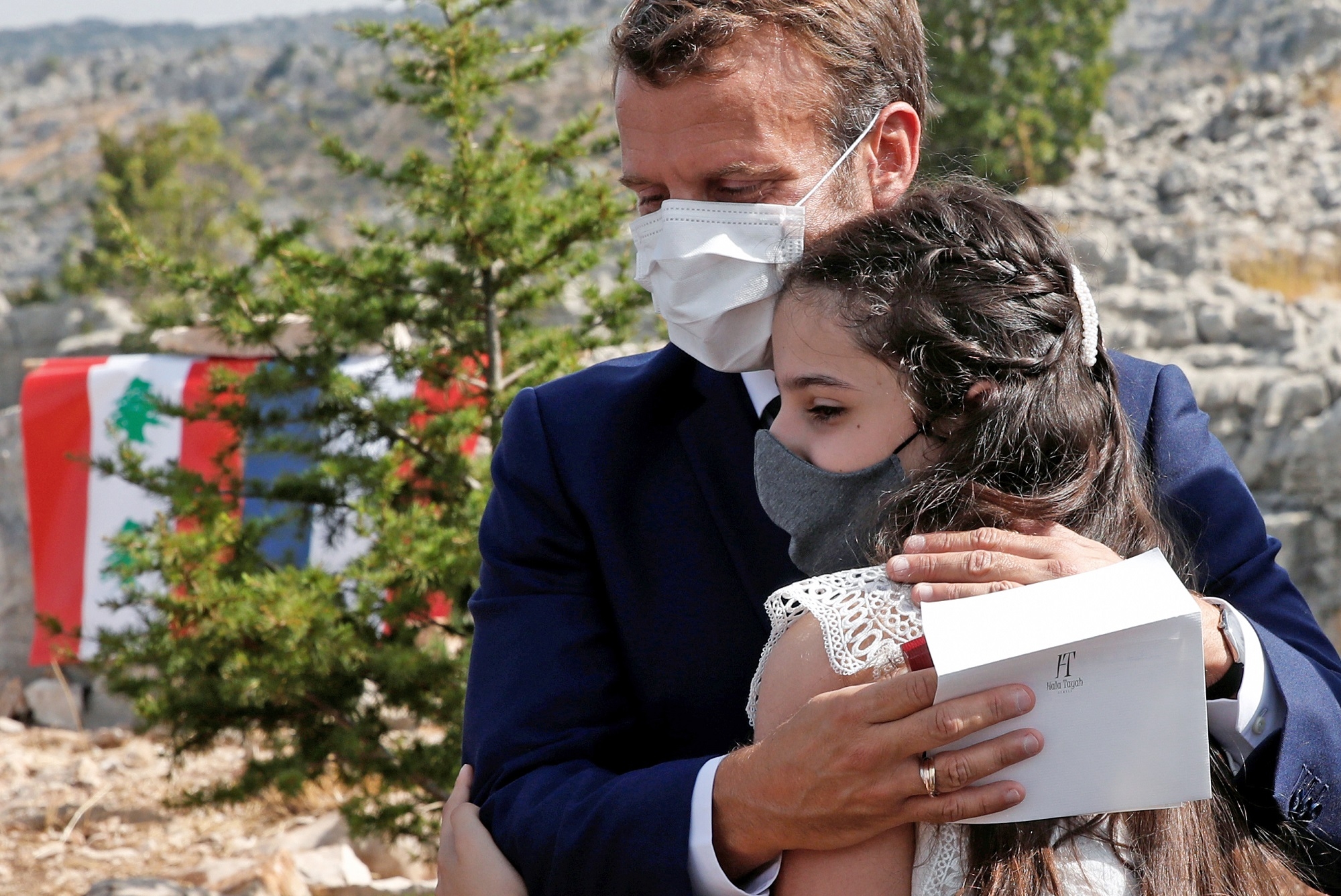
Washington and Paris agree on the need for political and economic reforms in Beirut, but have a "small difference" on how to deal with Hezbollah, a top US official says, highlighting a disagreement between the Western allies' approach to Lebanon.
David Schenker, assistant secretary of state for Near Eastern affairs, said on Wednesday the US administration backs French efforts in Lebanon, but that the two countries did not see eye-to-eye on the relationship with Hezbollah.
"We do have a small difference on Hezbollah, and how we see the organisation," Schenker said at a virtual appearance with the Brookings Institution.
"We don't believe they are a 'legitimate political party'. We do believe that you have to choose between bullets and ballots, that political parties don't have militia to enforce their support, or to threaten and intimidate other politicians and political parties."
French President Emmanuel Macron has visited Lebanon twice since the Beirut port blast killed more than 200 people and devastated large parts of the Lebanese capital.
New MEE newsletter: Jerusalem Dispatch
Sign up to get the latest insights and analysis on Israel-Palestine, alongside Turkey Unpacked and other MEE newsletters
The French initiative
During his trips, Macron pushed for major reforms, particularly in the energy and banking sectors, to salvage the Lebanese economy, which had already been in free fall with the currency losing more than 80 percent of its value over the past year.
Still, the French president has treated Hezbollah as any other Lebanese political party, avoiding discussions of the group's weapons or regional influence outside the scope of the state.
Meanwhile, Washington continues to deal with the Lebanese group through the lens of its so-called maximum pressure campaign against Hezbollah's Iranian patrons.
"We are more of the mind of Germany and some other states that increasingly see Hezbollah as a problem. And we are encouraging France to take a harder look at this," Schenker said.
Despite highlighting disagreements with Paris, the US diplomat said the administration was working in cooperation with French officials to push reforms in Lebanon, which Macron has made a pre-condition to releasing aid and rallying support for a bailout of the Lebanese economy.
The French initiative focuses on Lebanon's immediate domestic priorities without addressing the thornier political issue of Hezbollah's armed wing and the conflict with Israel.
During his visits Macron met with the representatives of various Lebanese factions, including Hezbollah - a decision he justified by saying that the group was a "political force that is represented in parliament".
Last week, he told Politico Europe that Paris was not interested in a confrontation with the Iran-backed Shia movement, suggesting that the French government wanted to avoid escalation with Hezbollah.
"Don't ask France to come wage war against a Lebanese political force... It would be absurd and crazy," said Macron.
Sanctions
In Washington, Hezbollah is designated as a terrorist organisation, and the Trump administration rejects the distinction between the group's political and armed wings.
On Tuesday, the US Treasury announced sanctions on two former Lebanese ministers - Ali Hassan Khalil and Yusuf Finyanus - accusing them of corruption and ties to Hezbollah.
Hezbollah dismissed the sanctions against the former officials, who come from parties allied to the Shia group rather than the group itself, and called the US measures a "medal of honour" for the two men's support for the "resistance".
Tuesday's sanctions - which stemmed from an executive order against terrorism - were aimed at Hezbollah and Iran. They spell a different approach from that of France, which threatened sanctions against Lebanese officials if they failed to implement reforms regardless of their ties to any political party.
On Tuesday, Schenker welcomed the prospect of French sanctions, calling Macron "a man of his word" who would follow through with the threat.
Lebanon is in the process of forming a new government, headed by Mustapha Adib, a former ambassador to Germany who was virtually unknown before his nomination to the premiership late last month. The cabinet of Prime Minister Hassan Diab had resigned after the blast.
Schenker refused to comment on Adib's nomination, saying that Washington was more interested in principles not personalities. "This is reform, reform, reform, fight corruption, transparency, accountability, disassociation," he said.
This article is available in French on Middle East Eye French edition.
Middle East Eye delivers independent and unrivalled coverage and analysis of the Middle East, North Africa and beyond. To learn more about republishing this content and the associated fees, please fill out this form. More about MEE can be found here.


